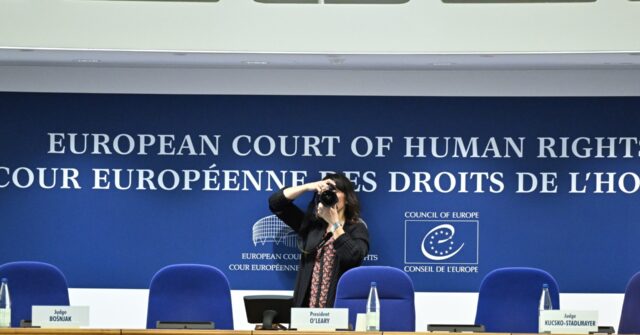An Albanian man known as Ardit Binaj has successfully contested his deportation from the UK, leveraging a legal argument based on the European Convention on Human Rights (ECHR). Binaj’s case revolves around Article 8 of the ECHR, which protects the right to a private and family life. After marrying his Lithuanian girlfriend and having a child, Binaj claimed that removing him from the UK would violate his rights under this article. His situation underscores the complexities surrounding immigration laws and human rights obligations in the UK, particularly for individuals who have committed crimes.
Binaj’s legal history is notable. He illegally entered the UK in 2014 by hiding in a lorry and was subsequently arrested for burglary the following year. In 2016, Binaj received a prison sentence of two and a half years for his offenses, but he was released early after serving just six months. In accordance with a prisoner transfer agreement with Albania, he was deported back to his home country. However, his journey did not end there, as he managed to return to the UK and eventually challenge his deportation in court.
The revelation of Binaj’s case has sparked renewed debates over the ECHR and its implications for immigration policy in the UK. Critics, including members of the Conservative Party, argue that the ECHR inhibits the UK’s ability to manage its borders effectively. Robert Jenrick, a former immigration minister and Conservative leadership candidate, emphasized that leaving the ECHR might be the only viable solution to prevent what he described as “farcical cases” like Binaj’s. This highlights a growing sentiment among critics that the current framework allows individuals with criminal backgrounds to exploit human rights laws to avoid deportation.
The discussions are not unique to Binaj’s situation; they reflect a wider criticism of Article 8 of the ECHR, which has been a focal point for those opposing the convention’s impact on immigration enforcement. Cases like that of Learco Chindamo—who murdered a head teacher but was protected from deportation by the same article—illustrate the legal complications and political difficulties arising from the ECHR’s provisions. As debates continue, the tension between ensuring national security and protecting individual rights remains high on the political agenda.
Legal experts and politicians are divided on the potential reforms or withdrawal from the ECHR. Advocates for reform argue that amendments could be made to the article to strike a better balance between upholding human rights and ensuring that dangerous or undesirable individuals can be effectively deported. On the other hand, there are those who firmly believe that leaving the ECHR would be necessary to regain control over immigration and deportation processes, which they see as essential for the safety and security of UK citizens.
Ultimately, Binaj’s case draws attention to a critical intersection of criminal justice, immigration policies, and human rights law in the UK. As legal challenges under the ECHR emerge, the ongoing dialogue around its role in shaping immigration practices is expected to intensify. Whether through calls for reform or discussions of withdrawal, the future of the ECHR in relation to the UK’s immigration landscape may be on the brink of significant change, reflecting broader concerns about sovereignty and individual rights in a complex legal environment.

